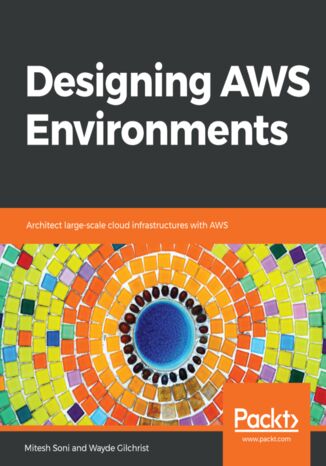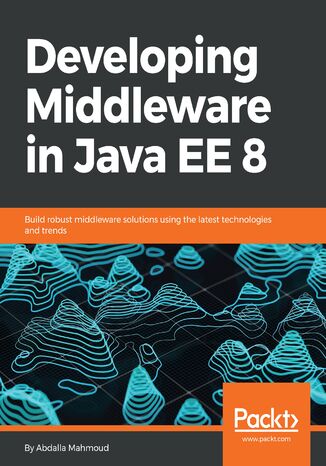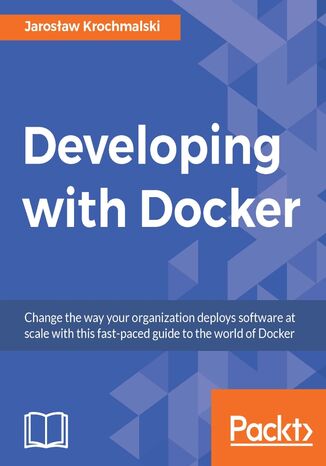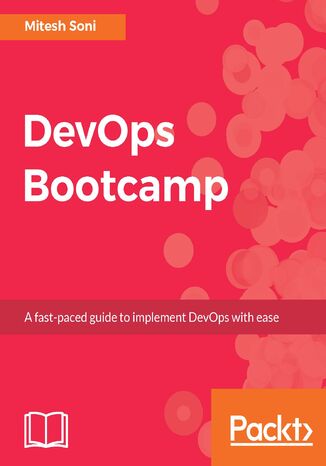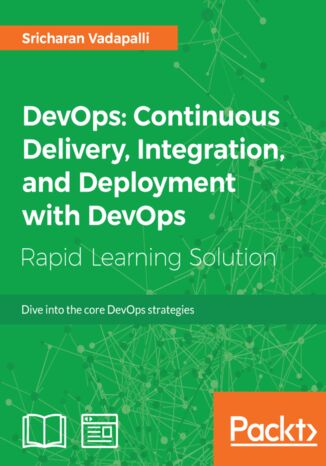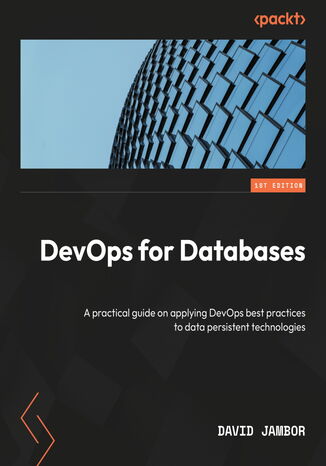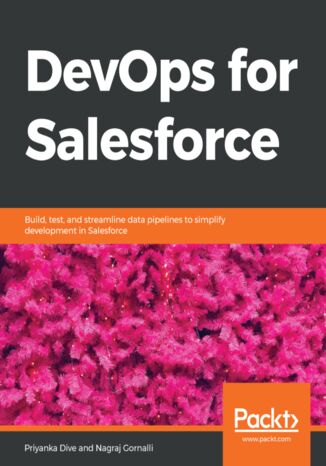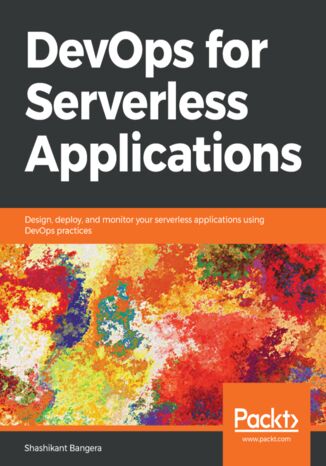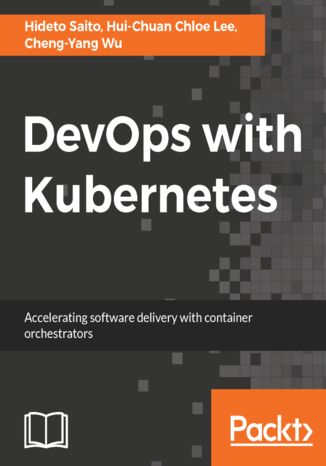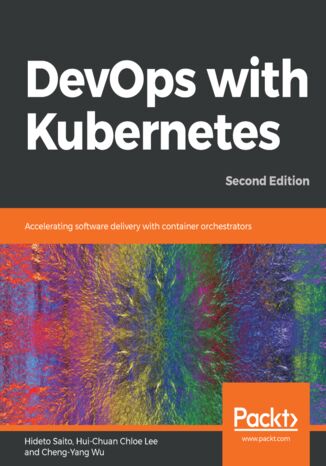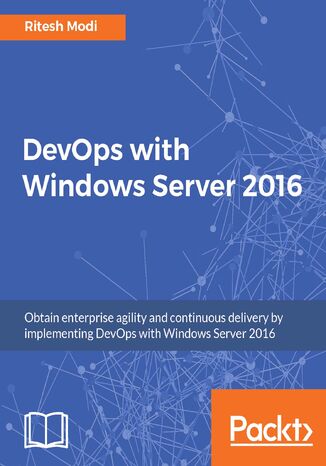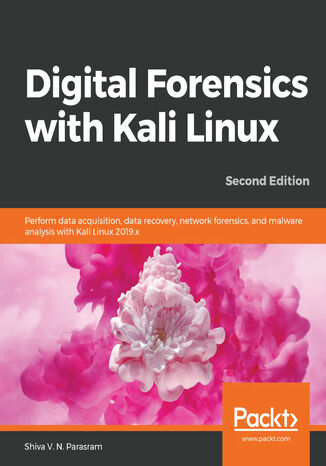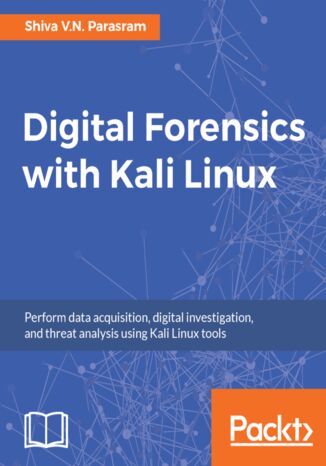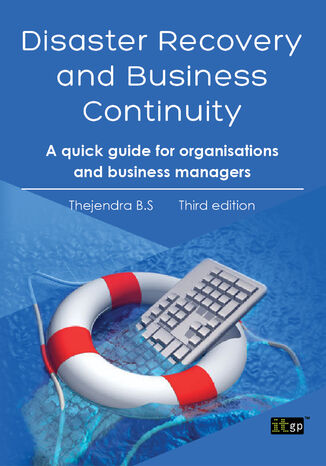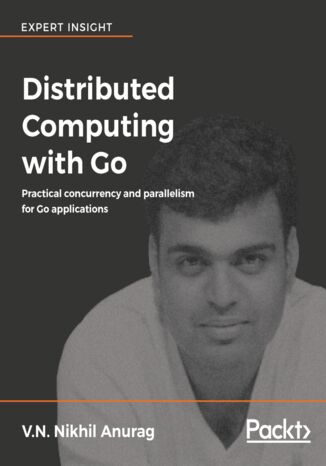Kategorie
Ebooki
-
Biznes i ekonomia
- Bitcoin
- Bizneswoman
- Coaching
- Controlling
- E-biznes
- Ekonomia
- Finanse
- Giełda i inwestycje
- Kompetencje osobiste
- Komputer w biurze
- Komunikacja i negocjacje
- Mała firma
- Marketing
- Motywacja
- Multimedialne szkolenia
- Nieruchomości
- Perswazja i NLP
- Podatki
- Polityka społeczna
- Poradniki
- Prezentacje
- Przywództwo
- Public Relation
- Raporty, analizy
- Sekret
- Social Media
- Sprzedaż
- Start-up
- Twoja kariera
- Zarządzanie
- Zarządzanie projektami
- Zasoby ludzkie (HR)
-
Dla dzieci
-
Dla młodzieży
-
Edukacja
-
Encyklopedie, słowniki
-
E-prasa
- Architektura i wnętrza
- BHP
- Biznes i Ekonomia
- Dom i ogród
- E-Biznes
- Ekonomia i finanse
- Ezoteryka
- Finanse
- Finanse osobiste
- Firma
- Fotografia
- Informatyka
- Kadry i płace
- Kobieca
- Komputery, Excel
- Księgowość
- Kultura i literatura
- Naukowe i akademickie
- Ochrona środowiska
- Opiniotwórcze
- Oświata
- Podatki
- Podróże
- Psychologia
- Religia
- Rolnictwo
- Rynek książki i prasy
- Transport i Spedycja
- Zdrowie i uroda
-
Historia
-
Informatyka
- Aplikacje biurowe
- Bazy danych
- Bioinformatyka
- Biznes IT
- CAD/CAM
- Digital Lifestyle
- DTP
- Elektronika
- Fotografia cyfrowa
- Grafika komputerowa
- Gry
- Hacking
- Hardware
- IT w ekonomii
- Pakiety naukowe
- Podręczniki szkolne
- Podstawy komputera
- Programowanie
- Programowanie mobilne
- Serwery internetowe
- Sieci komputerowe
- Start-up
- Systemy operacyjne
- Sztuczna inteligencja
- Technologia dla dzieci
- Webmasterstwo
-
Inne
-
Języki obce
-
Kultura i sztuka
-
Lektury szkolne
-
Literatura
- Antologie
- Ballada
- Biografie i autobiografie
- Dla dorosłych
- Dramat
- Dzienniki, pamiętniki, listy
- Epos, epopeja
- Esej
- Fantastyka i science-fiction
- Felietony
- Fikcja
- Humor, satyra
- Inne
- Klasyczna
- Kryminał
- Literatura faktu
- Literatura piękna
- Mity i legendy
- Nobliści
- Nowele
- Obyczajowa
- Okultyzm i magia
- Opowiadania
- Pamiętniki
- Podróże
- Poemat
- Poezja
- Polityka
- Popularnonaukowa
- Powieść
- Powieść historyczna
- Proza
- Przygodowa
- Publicystyka
- Reportaż
- Romans i literatura obyczajowa
- Sensacja
- Thriller, Horror
- Wywiady i wspomnienia
-
Nauki przyrodnicze
-
Nauki społeczne
-
Podręczniki szkolne
-
Popularnonaukowe i akademickie
- Archeologia
- Bibliotekoznawstwo
- Filmoznawstwo
- Filologia
- Filologia polska
- Filozofia
- Finanse i bankowość
- Geografia
- Gospodarka
- Handel. Gospodarka światowa
- Historia i archeologia
- Historia sztuki i architektury
- Kulturoznawstwo
- Lingwistyka
- Literaturoznawstwo
- Logistyka
- Matematyka
- Medycyna
- Nauki humanistyczne
- Pedagogika
- Pomoce naukowe
- Popularnonaukowa
- Pozostałe
- Psychologia
- Socjologia
- Teatrologia
- Teologia
- Teorie i nauki ekonomiczne
- Transport i spedycja
- Wychowanie fizyczne
- Zarządzanie i marketing
-
Poradniki
-
Poradniki do gier
-
Poradniki zawodowe i specjalistyczne
-
Prawo
- BHP
- Historia
- Kodeks drogowy. Prawo jazdy
- Nauki prawne
- Ochrona zdrowia
- Ogólne, kompendium wiedzy
- Podręczniki akademickie
- Pozostałe
- Prawo budowlane i lokalowe
- Prawo cywilne
- Prawo finansowe
- Prawo gospodarcze
- Prawo gospodarcze i handlowe
- Prawo karne
- Prawo karne. Przestępstwa karne. Kryminologia
- Prawo międzynarodowe
- Prawo międzynarodowe i zagraniczne
- Prawo ochrony zdrowia
- Prawo oświatowe
- Prawo podatkowe
- Prawo pracy i ubezpieczeń społecznych
- Prawo publiczne, konstytucyjne i administracyjne
- Prawo rodzinne i opiekuńcze
- Prawo rolne
- Prawo socjalne, prawo pracy
- Prawo Unii Europejskiej
- Przemysł
- Rolne i ochrona środowiska
- Słowniki i encyklopedie
- Zamówienia publiczne
- Zarządzanie
-
Przewodniki i podróże
- Afryka
- Albumy
- Ameryka Południowa
- Ameryka Środkowa i Północna
- Australia, Nowa Zelandia, Oceania
- Austria
- Azja
- Bałkany
- Bliski Wschód
- Bułgaria
- Chiny
- Chorwacja
- Czechy
- Dania
- Egipt
- Estonia
- Europa
- Francja
- Góry
- Grecja
- Hiszpania
- Holandia
- Islandia
- Litwa
- Łotwa
- Mapy, Plany miast, Atlasy
- Miniprzewodniki
- Niemcy
- Norwegia
- Podróże aktywne
- Polska
- Portugalia
- Pozostałe
- Przewodniki po hotelach i restauracjach
- Rosja
- Rumunia
- Słowacja
- Słowenia
- Szwajcaria
- Szwecja
- Świat
- Turcja
- Ukraina
- Węgry
- Wielka Brytania
- Włochy
-
Psychologia
- Filozofie życiowe
- Kompetencje psychospołeczne
- Komunikacja międzyludzka
- Mindfulness
- Ogólne
- Perswazja i NLP
- Psychologia akademicka
- Psychologia duszy i umysłu
- Psychologia pracy
- Relacje i związki
- Rodzicielstwo i psychologia dziecka
- Rozwiązywanie problemów
- Rozwój intelektualny
- Sekret
- Seksualność
- Uwodzenie
- Wygląd i wizerunek
- Życiowe filozofie
-
Religia
-
Sport, fitness, diety
-
Technika i mechanika
Audiobooki
-
Biznes i ekonomia
- Bitcoin
- Bizneswoman
- Coaching
- Controlling
- E-biznes
- Ekonomia
- Finanse
- Giełda i inwestycje
- Kompetencje osobiste
- Komunikacja i negocjacje
- Mała firma
- Marketing
- Motywacja
- Nieruchomości
- Perswazja i NLP
- Podatki
- Polityka społeczna
- Poradniki
- Prezentacje
- Przywództwo
- Public Relation
- Sekret
- Social Media
- Sprzedaż
- Start-up
- Twoja kariera
- Zarządzanie
- Zarządzanie projektami
- Zasoby ludzkie (HR)
-
Dla dzieci
-
Dla młodzieży
-
Edukacja
-
Encyklopedie, słowniki
-
E-prasa
-
Historia
-
Informatyka
-
Inne
-
Języki obce
-
Kultura i sztuka
-
Lektury szkolne
-
Literatura
- Antologie
- Ballada
- Biografie i autobiografie
- Dla dorosłych
- Dramat
- Dzienniki, pamiętniki, listy
- Epos, epopeja
- Esej
- Fantastyka i science-fiction
- Felietony
- Fikcja
- Humor, satyra
- Inne
- Klasyczna
- Kryminał
- Literatura faktu
- Literatura piękna
- Mity i legendy
- Nobliści
- Nowele
- Obyczajowa
- Okultyzm i magia
- Opowiadania
- Pamiętniki
- Podróże
- Poezja
- Polityka
- Popularnonaukowa
- Powieść
- Powieść historyczna
- Proza
- Przygodowa
- Publicystyka
- Reportaż
- Romans i literatura obyczajowa
- Sensacja
- Thriller, Horror
- Wywiady i wspomnienia
-
Nauki przyrodnicze
-
Nauki społeczne
-
Popularnonaukowe i akademickie
-
Poradniki
-
Poradniki zawodowe i specjalistyczne
-
Prawo
-
Przewodniki i podróże
-
Psychologia
- Filozofie życiowe
- Komunikacja międzyludzka
- Mindfulness
- Ogólne
- Perswazja i NLP
- Psychologia akademicka
- Psychologia duszy i umysłu
- Psychologia pracy
- Relacje i związki
- Rodzicielstwo i psychologia dziecka
- Rozwiązywanie problemów
- Rozwój intelektualny
- Sekret
- Seksualność
- Uwodzenie
- Wygląd i wizerunek
- Życiowe filozofie
-
Religia
-
Sport, fitness, diety
-
Technika i mechanika
Kursy video
-
Bazy danych
-
Big Data
-
Biznes, ekonomia i marketing
-
Cyberbezpieczeństwo
-
Data Science
-
DevOps
-
Dla dzieci
-
Elektronika
-
Grafika/Wideo/CAX
-
Gry
-
Microsoft Office
-
Narzędzia programistyczne
-
Programowanie
-
Rozwój osobisty
-
Sieci komputerowe
-
Systemy operacyjne
-
Testowanie oprogramowania
-
Urządzenia mobilne
-
UX/UI
-
Web development
-
Zarządzanie
Podcasty
- Ebooki
- Informatyka
- Systemy operacyjne
Systemy operacyjne
W niniejszej kategorii naszej biblioteki online znajdziesz książki dotyczące systemów operacyjnych. Część z nich stanowi wprowadzenie do takiego oprogramowania jak Windows, Linux, czy Android. Inne wgłębiają się w bardziej techniczne zagadnienia dotyczące konfiguracji tych systemów oraz narzędzi na nich wykorzystywanych jak np. Ansible.
Designing AWS Environments. Architect large-scale cloud infrastructures with AWS
Amazon Web Services (AWS) provides trusted,cloud-based solutions to help you meet your business needs. Running your solutions in the AWS Cloud can help you get your applications up and running faster while providing the security to meet your compliance requirements. This book begins by familiarizing you with the key capabilities to architect and host applications, websites, and services on AWS. We explain the available options for AWS free tier with virtual instances and demonstrate how you can launch and connect them. Using practical examples, you’ll be able to design and deploy networking and hosting solutions for large deployments. Finally, the book focuses on security and important elements of scalability and high availability using AWS VPC, Elastic Load Balancing, and Auto scaling. By the end of this book, you will have handson experience of working with AWS instances,VPC, Elastic Load Balancing, and Auto scalingrelated tasks on Amazon Web Services.
Designing Purpose-Built Drones for Ardupilot Pixhawk 2.1. Build drones with Ardupilot
The Ardupilot platform is an application ecosystem that encompasses various OS projects for drone programming, flight control, and advanced functionalities.The Ardupilot platform supports many Comms and APIs, such as DroneKit, ROS, and MAVLink. It unites OS drone projects to provide a common codebase. With the help of this book, you will have the satisfaction of building a drone from scratch and exploring its many recreational uses (aerial photography, playing, aerial surveillance, and so on). This book helps individuals and communities build powerfulUAVs for both personal and commercial purposes. You will learn to unleash the Ardupilot technology for building,monitoring, and controlling your drones.This is a step-by-step guide covering practical examples and instructions for assembling a drone, building ground control unit using microcontrollers, QgroundControl, and MissionPlanner.You can further build robotic applications on your drone utilizing critical software libraries and tools from the ROS framework. With the help of DroneKit and MAVLink (for reliable communication), you can customize applications via cloud and mobile to interact with your UAV.
Middleware is the infrastructure in software based applications that enables businesses to solve problems, operate more efficiently, and make money. As the use of middleware extends beyond a single application, the importance of having it written by experts increases substantially. This book will help you become an expert in developing middleware for a variety of applications. The book starts off by exploring the latest Java EE 8 APIs with newer features and managing dependencies with CDI 2.0. You will learn to implement object-to-relational mapping using JPA 2.1 and validate data using bean validation. You will also work with different types of EJB to develop business logic, and with design RESTful APIs by utilizing different HTTP methods and activating JAX-RS features in enterprise applications. You will learn to secure your middleware with Java Security 1.0 and implement various authentication techniques, such as OAuth authentication. In the concluding chapters, you will use various test technologies, such as JUnit and Mockito, to test applications, and Docker to deploy your enterprise applications. By the end of the book, you will be proficient in developing robust, effective, and distributed middleware for your business.
Developing with Docker. Learn to automate your deployments with Docker
Jaroslaw Krochmalski, Jarosław Krochmalski
This fast-paced practical guide will get you up and running with Docker. Using Docker, you will be able to build, ship, and run many distributed applications in real time. You will start with quickly installing Docker and start working with images and containers. We will present different types of containers and their applications, and show you how to find and build images. You will learn how you can contribute to the image repository by publishing different images. This will familiarize you with the image building process and you will be able to successfully run your programs within containers.By finishing this book, you will be well equipped in deploying your applications using Docker and will have a clear understanding of concepts, techniques, and practical methods to get it running in production systems.
DevOps Bootcamp. The fastest way to learn DevOps
DevOps Bootcamp delivers practical learning modules in manageable chunks. Each chunk is delivered in a day, and each day is a productive one. Each day builds your competency in DevOps. You will be able to take the task you learn every day and apply it to cultivate the DevOps culture.Each chapter presents core concepts and key takeaways about a topic in DevOps and provides a series of hands-on exercises. You will not only learn the importance of basic concepts or practices of DevOps but also how to use different tools to automate application lifecycle management. We will start off by building the foundation of the DevOps concepts. On day two, we will perform Continuous Integration using Jenkins and VSTS both by configuring Maven-based JEE Web Application?. We will also integrate Jenkins and Sonar qube for Static Code Analysis. Further, on day three, we will focus on Docker containers where we will install and configure Docker and also create a Tomcat Container to deploy our Java based web application. On day four, we will create and configure the environment for application deployment in AWS and Microsoft Azure Cloud for which we will use Infrastructure as a Service and Open Source Configuration Management tool Chef. For day five, our focus would be on Continuous Delivery. We will automate application deployment in Docker container using Jenkins Plugin, AWS EC2 using Script, AWS Elastic Beanstalk using Jenkins Plugin, Microsoft Azure VM using script, and Microsoft Azure App Services Using Jenkins. We will also configure Continuous Delivery using VSTS. We will then learn the concept of Automated Testing on day six using Apache JMeter and URL-based tests in VSTS. Further, on day seven, we will explore various ways to automate application lifecycle management using orchestration. We will see how Pipeline can be created in Jenkins and VSTS, so the moment Continuous? Integration is completed successfully, Continuous Delivery will start and application will be deployed. On the final day, our focus would be on Security access to Jenkins and Monitoring of CI resources, and cloud-based resources in AWS and Microsoft Azure Platform as a Service.
DevOps is the most widely used software engineering culture and practice that aim sat software development and operation. Continuous integration is a cornerstone technique of DevOps that merges software code updates from developers into a shared central mainline.This book takes a practical approach and covers the tools and strategies of DevOps. It starts with familiarizing you with DevOps framework and then shows how toper form continuous delivery, integration, and deployment with DevOps. You will explore DevOps process maturity frameworks and progression models with checklist templates for each phase of DevOps. You will also be familiar with agile terminology, methodology, and the benefits accrued by an organization by adopting it. You will also get acquainted with popular tools such as Git, Jenkins ,Maven, Gerrit, Nexus, Selenium, and so on.You will learn configuration, automation, and the implementation of infrastructure automation (Infrastructure as Code) with tools such as Chef and Ansible.This book is ideal for engineers, architects, and developers, who wish to learn the core strategies of DevOps.This book is embedded with useful assessments that will help you revise the concepts you have learned in this book. This book is repurposed for this specific learning experience from material from Packt's Hands-on DevOps by Sricharan Vadapalli.
In today's rapidly evolving world of DevOps, traditional silos are a thing of the past. Database administrators are no longer the only experts; site reliability engineers (SREs) and DevOps engineers are database experts as well. This blurring of the lines has led to increased responsibilities, making members of high-performing DevOps teams responsible for end-to-end ownership. This book helps you master DevOps for databases, making it a must-have resource for achieving success in the ever-changing world of DevOps.You’ll begin by exploring real-world examples of DevOps implementation and its significance in modern data-persistent technologies, before progressing into the various types of database technologies and recognizing their strengths, weaknesses, and commonalities. As you advance, the chapters will teach you about design, implementation, testing, and operations using practical examples, as well as common design patterns, combining them with tooling, technology, and strategies for different types of data-persistent technologies. You’ll also learn how to create complex end-to-end implementation, deployment, and cloud infrastructure strategies defined as code.By the end of this book, you’ll be equipped with the knowledge and tools to design, build, and operate complex systems efficiently.
Priyanka Dive, Nagraj Gornalli
Salesforce is one of the top CRM tools used these days, and with its immense functionalities and features, it eases the functioning of an enterprise in various areas of sales, marketing, and finance, among others. Deploying Salesforce applications is a tricky event, and it can get quite taxing for admins and consultants. This book addresses all the problems that you might encounter while trying to deploy your applications and shows you how to resort to DevOps to take these challenges head on.Beginning with an overview of the development and delivery process of a Salesforce app, DevOps for Salesforce covers various types of sandboxing and helps you understand when to choose which type. You will then see how different it is to deploy with Salesforce as compared to deploying with another app. You will learn how to leverage a migration tool and automate deployment using the latest and most popular tools in the ecosystem. This book explores topics such as version control and DevOps techniques such as Continuous Integration, Continuous Delivery, and testing. Finally, the book will conclude by showing you how to track bugs in your application changes using monitoring tools and how to quantify your productivity and ROI.By the end of the book, you will have acquired skills to create, test, and effectively deploy your applications by leveraging the features of DevOps.
Serverless applications are becoming very popular among developers and are generating a buzz in the tech market. Many organizations struggle with the effective implementation of DevOps with serverless applications. DevOps for Serverless Applications takes you through different DevOps-related scenarios to give you a solid foundation in serverless deployment.You will start by understanding the concepts of serverless architecture and development, and why they are important. Then, you will get to grips with the DevOps ideology and gain an understanding of how it fits into the Serverless Framework. You'll cover deployment framework building and deployment with CI and CD pipelines for serverless applications. You will also explore log management and issue reporting in the serverless environment. In the concluding chapters, you will learn important security tips and best practices for secure pipeline management.By the end of this book, you will be in a position to effectively build a complete CI and CD delivery pipeline with log management for serverless applications.
DevOps with Kubernetes. Accelerating software delivery with container orchestrators
Hideto Saito, Hui-Chuan Chloe Lee, Cheng-Yang Wu
Containerization is said to be the best way to implement DevOps. Google developed Kubernetes, which orchestrates containers efficiently and is considered the frontrunner in container orchestration. Kubernetes is an orchestrator that creates and manages your containers on clusters of servers. This book will guide you from simply deploying a container to administrate a Kubernetes cluster, and then you will learn how to do monitoring, logging, and continuous deployment in DevOps. The initial stages of the book will introduce the fundamental DevOps and the concept of containers. It will move on to how to containerize applications and deploy them into. The book will then introducenetworks in Kubernetes. We then move on to advanced DevOps skills such as monitoring, logging, and continuous deployment in Kubernetes. It will proceed to introduce permission control for Kubernetes resources via attribute-based access control and role-based access control. The final stage of the book will cover deploying and managing yourcontainer clusters on the popular public cloud Amazon Web Services and GoogleCloud Platform. At the end of the book, other orchestration frameworks, such asDocker Swarm mode, Amazon ECS, and Apache Mesos will be discussed.
DevOps with Kubernetes. Accelerating software delivery with container orchestrators - Second Edition
Hideto Saito, Hui-Chuan Chloe Lee, Cheng-Yang Wu
Kubernetes has been widely adopted across public clouds and on-premise data centers. As we're living in an era of microservices, knowing how to use and manage Kubernetes is an essential skill for everyone in the IT industry.This book is a guide to everything you need to know about Kubernetes—from simply deploying a container to administrating Kubernetes clusters wisely. You'll learn about DevOps fundamentals, as well as deploying a monolithic application as microservices and using Kubernetes to orchestrate them. You will then gain an insight into the Kubernetes network, extensions, authentication and authorization. With the DevOps spirit in mind, you'll learn how to allocate resources to your application and prepare to scale them efficiently. Knowing the status and activity of the application and clusters is crucial, so we’ll learn about monitoring and logging in Kubernetes. Having an improved ability to observe your services means that you will be able to build a continuous delivery pipeline with confidence. At the end of the book, you'll learn how to run managed Kubernetes services on three top cloud providers: Google Cloud Platform, Amazon Web Services, and Microsoft Azure.
DevOps with Windows Server 2016. Click here to enter text
Delivering applications swiftly is one of the major challenges faced in fast-paced business environments. Windows Server 2016 DevOps is the solution to these challenges as it helps organizations to respond faster in order to handle the competitive pressures by replacing error-prone manual tasks using automation.This book is a practical description and implementation of DevOps principles and practices using the features provided by Windows Server 2016 and VSTS vNext. It jumps straight into explaining the relevant tools and technologies needed to implement DevOps principles and practices. It implements all major DevOps practices and principles and takes readers through it from envisioning a project up to operations and further. It uses the latest and upcoming concepts and technologies from Microsoft and open source such as Docker, Windows Container, Nano Server, DSC, Pester, and VSTS vNext.By the end of this book, you will be well aware of the DevOps principles and practices and will have implemented all these principles practically for a sample application using the latest technologies on the Microsoft platform. You will be ready to start implementing DevOps within your project/engagement.
Kali Linux is a Linux-based distribution that's widely used for penetration testing and digital forensics. It has a wide range of tools to help for digital forensics investigations and incident response mechanisms.This updated second edition of Digital Forensics with Kali Linux covers the latest version of Kali Linux and The Sleuth Kit. You'll get to grips with modern techniques for analysis, extraction, and reporting using advanced tools such as FTK Imager, hex editor, and Axiom. Updated to cover digital forensics basics and advancements in the world of modern forensics, this book will also delve into the domain of operating systems. Progressing through the chapters, you'll explore various formats for file storage, including secret hiding places unseen by the end user or even the operating system. The book will also show you how to create forensic images of data and maintain integrity using hashing tools. Finally, you'll cover advanced topics such as autopsies and acquiring investigation data from networks, operating system memory, and quantum cryptography.By the end of this book, you'll have gained hands-on experience of implementing all the pillars of digital forensics: acquisition, extraction, analysis, and presentation, all using Kali Linux tools.
Kali Linux is a Linux-based distribution used mainly for penetration testing and digital forensics. It has a wide range of tools to help in forensics investigations and incident response mechanisms. You will start by understanding the fundamentals of digital forensics and setting up your Kali Linux environment to perform different investigation practices. The book will delve into the realm of operating systems and the various formats for file storage, including secret hiding places unseen by the end user or even the operating system. The book will also teach you to create forensic images of data and maintain integrity using hashing tools. Next, you will also master some advanced topics such as autopsies and acquiring investigation data from the network, operating system memory, and so on. The book introduces you to powerful tools that will take your forensic abilities and investigations to a professional level, catering for all aspects of full digital forensic investigations from hashing to reporting. By the end of this book, you will have had hands-on experience in implementing all the pillars of digital forensics—acquisition, extraction, analysis, and presentation using Kali Linux tools.
Disaster Recovery and Business Continuity. A quick guide for organisations and business managers
IT Governance Publishing, Thejendra B.S
This book delves into disaster recovery (DR) and business continuity (BC), offering practical strategies for organizations to prepare for and manage disruptions. It starts by defining core concepts of DR and BC, highlighting their role in crisis management. Early chapters explore business impact analysis, data protection, and risk assessment, while examining common IT and non-IT disasters like data loss, cyberattacks, and communication failures.Later sections focus on specific disaster scenarios, such as virus attacks, software failures, and data center risks, offering prevention methods and recovery plans. It also addresses human factors in DR, covering IT staff and contractor management, and the risks tied to outsourcing and project failures.In addition to IT risks, the book explores non-IT disasters, including health crises, financial challenges, and natural events, with strategies for mitigation. The final chapters provide guidance on creating and testing contingency plans, featuring checklists and mock run procedures. This book empowers readers to design, implement, and maintain effective DR and BC plans for their organization’s needs.
Distributed Computing with Go. Practical concurrency and parallelism for Go applications
Distributed Computing with Go gives developers with a good idea how basic Go development works the tools to fulfill the true potential of Golang development in a world of concurrent web and cloud applications. Nikhil starts out by setting up a professional Go development environment. Then you’ll learn the basic concepts and practices of Golang concurrent and parallel development. You’ll find out in the new few chapters how to balance resources and data with REST and standard web approaches while keeping concurrency in mind. Most Go applications these days will run in a data center or on the cloud, which is a condition upon which the next chapter depends. There, you’ll expand your skills considerably by writing a distributed document indexing system during the next two chapters. This system has to balance a large corpus of documents with considerable analytical demands. Another use case is the way in which a web application written in Go can be consciously redesigned to take distributed features into account. The chapter is rather interesting for Go developers who have to migrate existing Go applications to computationally and memory-intensive environments. The final chapter relates to the rather onerous task of testing parallel and distributed applications, something that is not usually taught in standard computer science curricula.

